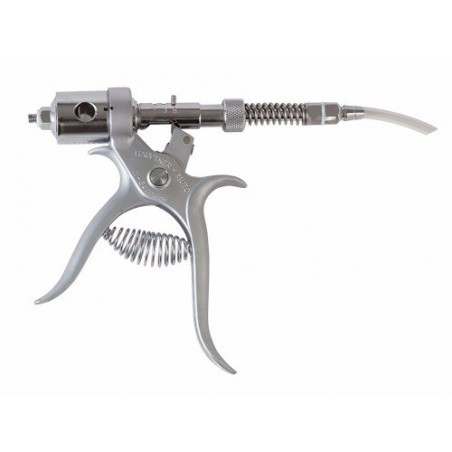Just a few months ago, no one had imagined a global scenario such as the one we are experiencing with the COVID-19 crisis. The biggest risk to the industry was African swine fever, but none of us could have imagined anything close to what is happening now.
We thought that 2020 would be a good year for prices in the pig industry due to the global pork deficit caused by ASF difficulties in China and other Asian countries.

The present surprised us again with an unexpected, and very negative scenario.
COVID-19 has barged in forcibly and confinement has radically changed consumer habits. All the meat products that were used by the on-premises channel, (hotels, restaurants, catering...) have had a radical drop in consumption, and the prices of the products that were sold by this channel have sunk. This has had a particular impact on the beef and lamb industry and for the pork sector, on those products whose main market is in the hotel and catering industry.
In addition, due to the confinement, family celebrations (weddings, religious celebrations, birthdays) and many popular festivals and gatherings (Oktoberfest, April Fair, Sanfermines, etc.) are prohibited, which has affected the consumption of certain products, such as Iberian ham, which is closely tied to many spanish popular celebrations. The 2020 travel and tourism season, which has such an impact on pork consumption, is practically lost in certain countries.
Influence on the markets
Today, certain industries such as the conventional pig industry in Spain are withstanding the impact of the COVID-19 crisis thanks to the forecast of exports to China. There has been a significant drop in prices, but they have not collapsed and demand remains relatively strong.
On the other hand, the COVID-19 crisis has substantially affected the American market. In the USA, the closure of some of the most important slaughterhouses, due to many of their employees contracting COVID-19, has caused a remarkable collapse in prices. The impossibility of slaughtering a significant percentage of the pigs, despite an executive order from President Trump, forcing slaughterhouses to remain open to avoid shortages, has created an unprecedented crisis. This crisis has infected Mexico, the main destination for U.S. exports, and Canada, which exports many piglets and pork to the United States. In Spain, although there are some labor problems in some slaughterhouses due to employees contracting COVID-19, to date most of them have continued operating with a certain degree of normalcy.
In the rest of Europe, both the confinement and the inability to have the popular "barbecues", in certain countries, have caused a faster and more significant drop in prices than in Spain.
In sectors dedicated to the high-quality meat products associated with the foodservice industry, the crisis came suddenly and with unsuspected force. In the Iberian sector, the price of live pigs has collapsed and there are even problems to slaughter some animals.
Some lessons for the future
Calmly analyzing what is happening now can provide us with elements and ideas on how to face the future in the short and mid-term, and we can probably draw on some new lessons. But here, I'll try to offer some first reflections and lessons learned:
The first, and most essential, is the importance of the primary sector to society as a whole. Many industries have ceased activity, but the food-production sector has stayed active, considered essential for society as a whole. It has continued to work with the utmost responsibility, producing food with the highest levels of quality and safety. In crises such as this, the primary sector demonstrates and confirms its importance for the future.
The Iberian pork crisis, as an example of a quality pork product, should cause us to reflect on the importance of costs for high-quality meat products as well, because when an economic crisis comes, which happen cyclically, consumption plummets and prices collapse. Conventional pork is a product common to our shopping carts, and economic crises, although they affect it, do so to a much lesser extent than what happens with premium-quality products. To paraphrase Darwin: IT IS NOT THE STRONGEST THAT SURVIVE BUT THE ONES MOST ADAPTABLE TO CHANGE.
Biosecurity and health are key to the pig industry's survival. Working with a high "health status" is cheaper and more effective than any other health situation. But to do this we must invest and work with high levels of biosecurity that prevent new pathogens from entering our farms, and eradicate some pathogens already present. Only in this way can we be competitive and, moreover, make a good impression on society as a whole. In this regard, the COVID-19 crisis is teaching us that only with joint and coordinated policies, national plans, and movement controls can we tackle certain diseases. This is how certain diseases have been controlled and eradicated (ASF, CSF, foot-and-mouth disease, Aujezsky), and this is the only way we will make progress against other diseases that are very economically important for the industry such as PRRS. In order to eradicate or lower the pressure of PRRS, we must establish national control plans that, under industry guidance and controlled by the administration, will establish truly effective guidelines for the control and eradication of this type of infectious disease.

I say this with the utmost respect for the victims of the pandemic, and there are major differences of course, but we keep thinking of hospitals and nursing homes as the hot spots for COVID-19, such as our weaners and isoweans, in which we must establish more aggressive health plans that include frequent depopulations and All-In/All-Out systems, which are critical when viruses are active.
In an increasingly globalized world, unless this pandemic changes things greatly, diseases will become more and more universal due to the greater movement of people and goods, including food, which will make it easier for diseases to spread throughout the planet. This is why biosecurity is so important in a broad and global sense, not only at the farm level, but as a set of measures aimed at preventing new pathogens from entering our country.
Finally, another major problem that has become apparent in this crisis, and which should be of great concern to us, is protecting our employees in a crisis, such as the one we are experiencing. Employees are essential for the development of any activity. Without them, neither slaughterhouses nor factories, nor farms, nor transport are able to function, and that is why we must have contingency plans, such as those implemented for COVID-19, to preserve the health of our employees as much as possible, first and foremost for their well-being, to keep food production chains going, and to guarantee the supply of much-needed food to society.







